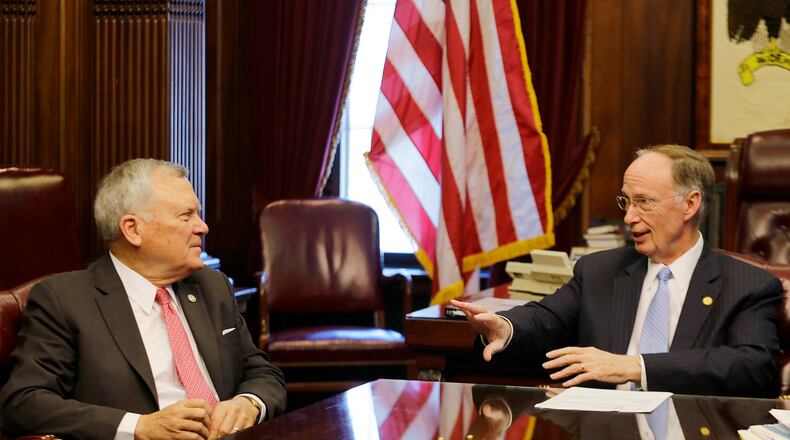WEST BLOCTON, ALA. — They're mad at the stagnant economy, decaying infrastructure and deepening divide between the wealthy and the poor. And on a recent stormy night, the frustrated and furious in this central Alabama town of 1,250 made sure the local political elite heard them.
“I want to get more for my two small kids,” said Daniel Sims, a fencing contractor and one of several fed-up residents challenging the incumbent mayor. “I don’t buy the excuses. It just seems we’re just settling, and I feel like we need more.”
Even in speck-on-the-map towns such as West Blocton, anyone with a scarlet "I" for incumbent next to their name is feeling defensive. And in Alabama, about the least likely state in the nation to flip to Hillary Clinton's camp, the anti-establishment fervor and a local GOP hierarchy rocked by scandal is cementing Donald Trump's rise.
There are no Democrats in top offices here to give heart to partisans like there are in Louisiana and Mississippi, where the party has kept a toehold. And the sweeping demographic changes that brought an influx of newcomers and minority voters to North Carolina and Georgia has hardly touched Alabama.
But if Alabama is the example of how conservatives can consolidate their power, it also shows the danger of an entrenched and sometimes-stagnant party, a lesson for a neighboring state where Republicans are trying to hold onto power amid a growing number of African-American and Hispanic voters.
Read more here about what lessons Alabama's deep-red political credentials could hold for Georgia.
We're traveling across the South this election season to bring you stories about how the region's demographic, generational and cultural changes -- or lack thereof -- are impacting the political playing field. Catch up on our first installment here.
More: Why the South is anything but solid for either Clinton or Trump
About the Author
The Latest
Featured



